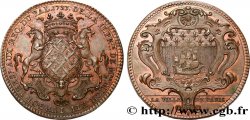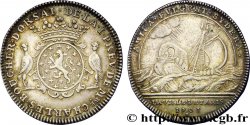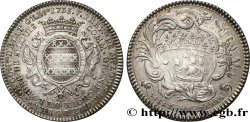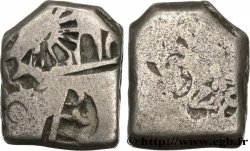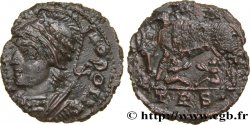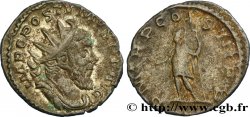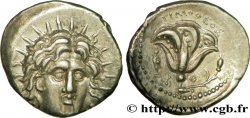Live auction - fjt_014174 - ILE DE FRANCE - TOWNS AND GENTRY Claude Le Peletier, prévot des marchands de Paris 1673
You must signin and be an approved bidder to bid, LOGIN TO BID. Accounts are subject to approval and the approval process takes place within 48 hours. Do not wait until the day a sale closes to register. Clicking on "BID" constitutes acceptance of the terms of use of cgb.fr private live auctions.
Bids must be placed in whole Euro amounts only. The sale will start closing at the time stated on the item description; any bids received at the site after the closing time will not be executed. Transmission times may vary and bids could be rejected if you wait until the last second. For further information check the Live auction FAQ
All winning bids are subject to a 18% buyer’s fee.
All winning bids are subject to a 18% buyer’s fee.
| Estimate : | 440 € |
| Price : | no bid |
| Maximum bid : | no bid |
| End of the sale : | 17 December 2024 15:58:18 |
Type : Claude Le Peletier, prévot des marchands de Paris
Date: 1673
Metal : silver
Diameter : 26,5 mm
Orientation dies : 6 h.
Weight : 5,88 g.
Edge : lisse
Puncheon : sans poinçon
Rarity : R2
Catalogue references :
Obverse
Obverse legend : DE LA 3E PREVOSTE DE MESR CLAVDE LE PELETIER.
Obverse description : Armes de Paris.
Reverse
Reverse legend : TRVNCVM CAPVT ABDIDIT VNDIS ; À L'EXERGUE : 1673.
Reverse description : Hercule appuyé sur sa massue élève la corne qu'il vient d'arracher au taureau Achelous qui va se cacher dans les roseaux.
Reverse translation : Il a arraché des flots la tête mutilée.
Commentary
Claude Le Peletier, seigneur d’Ablon, de Montmélian, de Morfontaine...., né en juin 1631, d’abord conseiller au Châtelet, il passa, le 29 janvier 1652, au Parlement, où il devint, en 1662, président de la cinquième chambre des enquêtes. Après la mort de Gaston, duc d’Orléans (2 février 1660), il fut tuteur des filles de ce prince. En 1667, il fut choisi pour doyen d’honneur de la Faculté de droit. Nommé conseiller d’État en 1673, il fut appelé, en 1683, après la mort de Colbert, au poste de contrôleur général des finances, qu’il occupa jusqu’en septembre 1689, et il fut, en outre, créé ministre d’État. En 1686, il acheta une charge de président à mortier, qu’il céda, trois ans après, à son fils Louis. Enfin, il fut chargé de la surintendance des postes en 1671, en remplacement du marquis de Louvois. Désirant le repos, il se démit de ses emplois en 1697, et il mourut, dans la retraite, le 10 août 1711, à quatre-vingt ans.







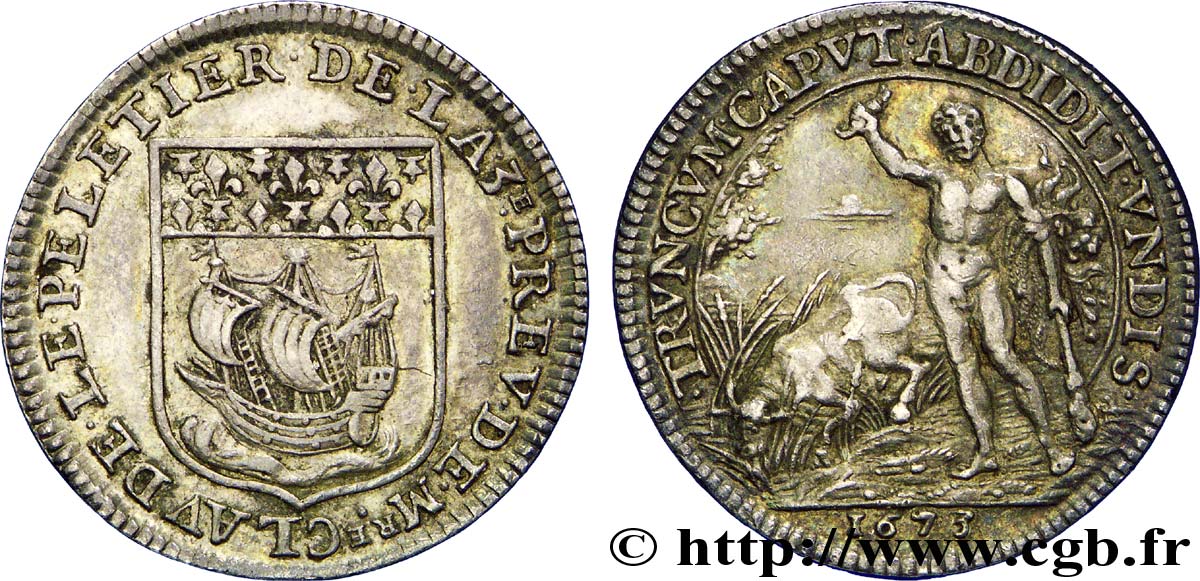
 Report a mistake
Report a mistake Print the page
Print the page Share my selection
Share my selection Ask a question
Ask a question Consign / sell
Consign / sell
 Full data
Full data
